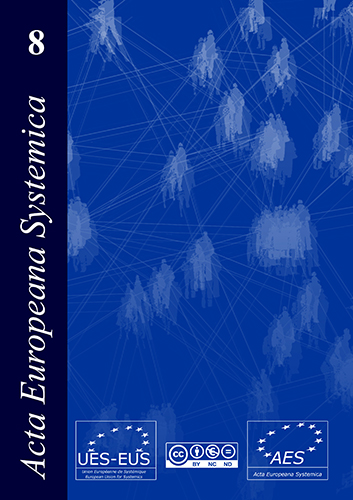Crise : Quelques réflexions systémiques sur l'anthropocene
DOI:
https://doi.org/10.14428/aes.v8i1.56243Keywords:
growth, social crisis, sustainable development, ecology, globalization, humanity, ideology, feedbackAbstract
Prior to globalization, crises were due to local or regional environmental abuses, leadership conflicts, local or regional climatic disasters, major epidemics or pandemics. The humanity of the beginning of the 21st century is facing for the first time a situation of global change on a planetary scale. The origin of this change is endogenous to the human species. Scientific and technological evolution has endowed humanity with powerful means of action that have transformed it into an important actor in the planetary ecology. This transformation is a consequence of fundamental factors that have reinforced each other. The use of fossil fuels returns to the environment gigantic amounts of solar energy fossilized in vegetable form during the billions of years of the primary, secondary and tertiary geological ages. The inevitable consequence is and will be more and more, global climate warming. This profound change could it surely causes serious adjustment disorders in all human societies. It is in this sense that the word "crisis" acquires its full and sinister meaning. A financial crisis is nothing more than the repetition of a psychosociological episode also recurrent in the evolution of the economy. A remarkable consequence is that man (biological, psychosocial) has become a "piece" of a huge machine, on a planetary scale, and his activities are increasingly conditioned by this machine created by himself. The concept of competitive advantage generally dominates economic thinking. This way of thinking reflects the historical situation of humanity. Until today, the human species could progress without limits towards greater use of its planetary environment. The waste did not have a negative ecological significance. The most sensible and appropriate objective, certainly, is not to lead all of humanity to share the waste that, by hyper-consumption, characterizes, for the moment, the societies considered as developed. A rational objective would be to guarantee to all humanity a level of life as satisfactory as possible, based on truly renewable planetary resources, assuming the need to keep the planet habitable.
Downloads
Published
How to Cite
Issue
Section
License




